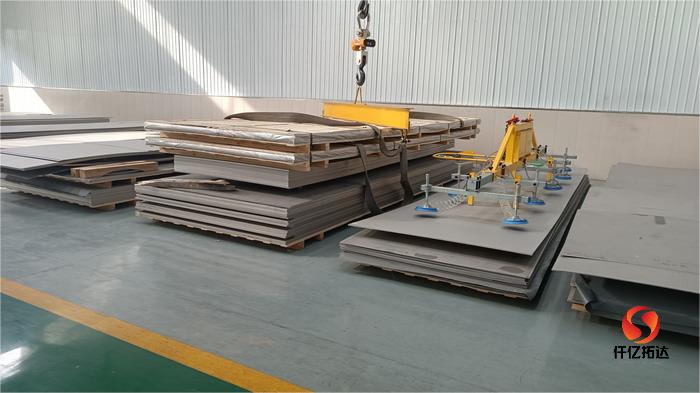About Us
- Company Profile
- Corporate Culture
- Introduction to Titanium Alloy
- Introduction to Titanium Tube
- Introduction to Titanium Rod
- Introduction to Titanium Plate
- Introduction to Nickel Tube
- Introduction to Nickel Plate
- Introduction to Nickel Alloy
- Introduction to Titanium Stirrer
- Application of titanium agitator
- Industrial mixer
- Introduction to pressure instruments
- Introduction to Sensors

Titanium Sheet:
Production Process: The production process of titanium sheets is similar to titanium rods, involving multiple steps such as extracting high-purity titanium blocks, thermal processing, and cold processing to obtain the desired sheet shape and performance.
Specifications: Titanium sheet specifications cover aspects such as thickness, width, and length, and can be customized according to customer requirements to meet the usage demands of various industries.
Differences from Other Materials: Titanium sheets, compared to other metal sheets, exhibit lower density, higher strength, and outstanding corrosion resistance, making them suitable for high-demand environments.
Applications: Titanium sheets find extensive applications in aerospace, chemical engineering, marine engineering, and other fields, serving purposes such as aircraft structures, chemical equipment casings, and more.
Market Demand: With the increasing demand for high-performance metal sheets, the market demand for titanium sheets is gradually rising, especially in high-tech and specialized environments.
Varieties: Varieties of titanium sheets include pure titanium sheets and alloy sheets, catering to the requirements of different engineering projects.
Quality Inspection in the Production Process: Strict quality control and inspection methods, including ultrasonic testing and X-ray detection, ensure that titanium sheets meet the required standards.
Welding: Precision welding techniques are essential for titanium sheet welding to ensure the quality of weld seams and overall performance.
Surface Treatment: Surface treatment of titanium sheets typically involves processes like polishing and acid washing to enhance surface quality and corrosion resistance.
Mechanical Properties and Chemical Composition: The mechanical properties and chemical composition of titanium sheets may vary based on the specific alloy materials, typically including parameters such as strength and hardness.
Email:qy002@sxqytd.com;Tel:+8618829679311
